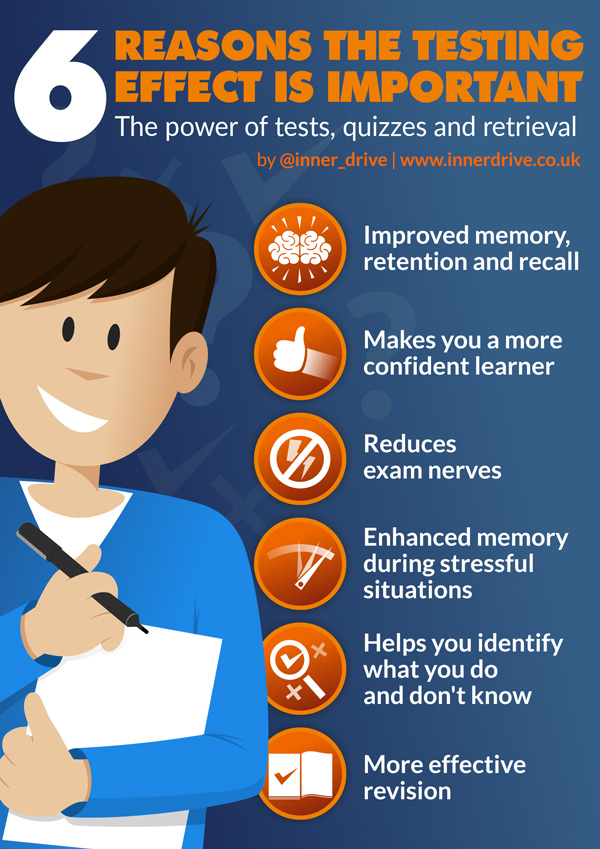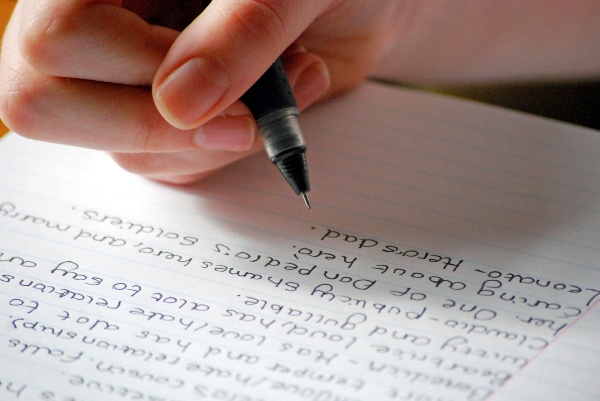How to revise: the ultimate guide for GCSEs and A Levels
How to revise for (and ace) your GCSE, IGCSE, A Level and IB exams
Your exams are approaching and you need to revise if you’re going to do the best you can. To do that, you need to learn how to revise in a way that suits you. So what revision techniques should you use? When should you start revising? How long should you revise for each day?
In this guide, we’re attempting to answer all of those questions and more. We’ll give you all the information you need. With our advice, you’ll be able to fine-tune your techniques to suit you, and have the best possible chance when it comes to exam time.
We’ve created this guide as a one-stop-shop for revision tips and advice. It’s a long-read if you try to tackle it all in one go, so make sure to bookmark this page and come back to it whenever you need more advice.
And, if you find this information useful, don’t forget to share it with your friends.
Within this guide, we’re aiming to answer every question you might have about revision. If there’s anything we haven’t covered, ask us in the comments! One of our expert tutors will be able to help.
Index
1. The best ways to revise: study techniques for better results
What is the best way to revise? Well, almost every guide out there will say “whatever works for you”. Well, that is true, but it’s not a very helpful answer.
In this section we’ll go through the most effective techniques you can use to revise. Then, by trying out these techniques as you go, you’ll find which ones are the most effective for your learning style.
Avoid passive revision: embrace active revision techniques
The most common revision technique students use is also one of the most ineffective: reading notes. Sure, it seems like the most logical place to start. But - reading notes is a passive revision technique which doesn’t fully engage your brain. It isn’t an effective tactic for memorising information.
Guess what. Copying out your notes word for word is just as ineffective. Be honest with yourself: how often do you find yourself copying out notes while your mind is thinking about something different entirely?
Active revision is a far more efficient form of studying. Active revision is slower, but it provides three main benefits:
It makes your brain work, which activates the memory centres of your brain, and makes you more likely to form strong memories of the information you’re trying to take in.
It makes you re-assess the information you think you know, and forces you to work towards re-learning it.
It is far more interesting than passive revision exercises.
So, what forms of revision are active? Read our recommended revision techniques for a variety of great examples.
Revise multiple subjects across the day
It might seem logical to spend one day on one subject, then move on to another subject each day. But, our brains don’t work that way. The longer we spend on a single subject, the more likely we are to grow bored, un-engaged, and stop learning the information we’re trying to force into our brains.
Instead, plan to study multiple subjects each day. If you only have one subject left to revise, remember to break it down into different topics throughout the day.
Read more on how to plan your revision.
Test yourself
If you remember nothing else from this guide, remember this: testing yourself is the most important aspect of your revision.
Why? Because it is scientifically proven that devoted a certain amount of study-time to testing yourself cements information into your long term memory. This is known as the testing effect.
As Inner Drive summarise in this handy infographic, there are 6 key benefits from this effect.
Make sure to use revision techniques which continually test your knowledge. Answering practice questions and asking a friend to test you are great ways to make sure you stay on top of your knowledge. Scroll down to the next section to see the rest of our recommended revision techniques.
Then, when you’re ready, make sure you try past papers. Past papers are the best pre-exam preparation. They test your knowledge under timed conditions and prepare you for the kinds of questions you’re going to need to answer.
But, make sure when you’re doing past papers that you don’t look at your notes. There’s no point cheating yourself - the act of trying to remember something under pressure makes you far more likely to remember it in the real exam.
If you can’t remember something in a past paper, note it down. Now you know you need to do more revision in that area.
12 recommended revision techniques
Depending on who you ask there are 4 or 7 distinct learning styles. The main thing to take on board is that different techniques are more effective for different people. So, in order to get the best out of your revision sessions, you need to try out lots of different techniques and see what works for you.
The important thing is to use techniques which are active, and which force you to test yourself. Try out our tutors’ favourite techniques:
1. Make effective notes as you read through revision guides. Take the information you’re reading and extract the key points which will help you remember it. Copying text word for word is pointless. But, the act of summarising information with notes forces your brain to focus on the subject matter.
2. Write down a summary of a topic before you move on to the next one. If you are able to sum up all of the key points from memory, you can confidently say that you know it.
3. Create flashcards to distil information into an easily reviewable format. You can then use these cards to test your memory and find out which topics you need to revise more thoroughly.
4. Draw mind maps to organise information visually. Mind maps help some people to picture information and remember the connections between key details.
5. Practise along with educational videos, such as our series on re-arranging formulas for GCSE Maths. For some people, watching videos is far more engaging than reading. If you’re one of those people, make sure you actively take notes or practice questions while the video is running. This will prevent your mind from wandering.
6. Discuss your ideas with your classmates and friends, especially for opinion-based subjects such as English Literature. Opening yourself to their ideas will help you formulate your own opinions. You should debate your ideas amongst each other, and try to persuade them with your own arguments. This will prepare you to express your opinions in the exam.
7. Try teaching a topic to someone who knows nothing about it. If you can teach someone else about a topic, then you have a good grasp of it. Remember, if you recognise any gaps in your knowledge while you’re trying to teach a topic, make a note to go back and revise it.
8. Draw diagrams and tables whenever appropriate. For some people, picturing a diagram is far easier than simply trying to remember the information that diagram represents.
9. Create a slideshow presentation to summarise a topic. To create a PowerPoint presentation (or any similar slideshow format), you will need to work creatively to divide your topic into sections and visually organise it. This creative work will help you engage your brain and form long term memories.
10. Test your friends and have them test you back. Remember - there’s no point cheating by using a textbook! If you don’t know the answer to a question, make a note and review it later.
11. Answer practice questions to continually practice how you’ll apply your knowledge in an exam. You can find revision questions for any subject online. There are also handy revision apps such as Gojimo. But, remember that practice questions may not be a good representation of the questions you’ll face in the exam.
12. Do past papers, under timed conditions, without your notes! There are only a limited number of past papers available online for your subject and exam board, so you should only attempt past papers when you think you’re ready to do so. But, when you do, this is the best possible way of testing yourself and preparing yourself for the exam.
Personally, I use a mix of learning techniques. The variety keeps me focused on the task at hand and prevents me from getting bored.
Read our top 10 memory tricks for revision for more techniques to help with those tricky topics. And, if you have your own revision techniques you swear by, why not let us know in the comments?
Repeat, repeat, repeat
Before we finish this section, there is one final thing you need to remember: repetition is how you create long term memories.
By testing and re-testing yourself, you will continually identify areas that you need to improve on. Focus on those areas and repeat your revision for those tricky topics, this time using different strategies.
There is a lot of science behind why repetition helps us study, but all you need to know for your revision is that repetition is key. If you’re really curious, watch this video on spaced repetition.
2. How to motivate yourself to study
Sometimes parents don’t understand. It doesn’t matter how concerned you are about your grades, what college you’re trying to get into, which University will accept you - sometimes you just have no motivation to sit down and start revising.
The amount you need to learn is too daunting, and the process is too boring. It’s sunny outside and you would rather be anywhere than here, at your desk, studying. We’ve all been there.
Study motivation is the key to overcoming this. But how do you motivate yourself to study?
Make a start
The hardest part about revising, is to start revising. So how do you get past that roadblock?
Choose the subject you find least scary and put pen to paper. Note down the things you are confident you know within that subject, and then note down the areas where you know you need to improve. Soon, your brain will be actively engaged on the task, and it will be much easier to keep going.
Remember this saying:
“A journey of a thousand miles begins with a single step”
Once you’ve started, you know there is only a certain amount of hours of work you still need to do. The more ground you cover, the less you have remaining.
Create a routine
If you want to stay motivated and keep up with your schedule, you need to create a routine that will help you. How? Read our post on 5 science-based techniques to improve your routine and increase your study motivation.
Like everything, revising is a gradual process of improvement. As you get into a routine, you’ll find it becomes more and more natural to study and stay motivated. That’s why it’s so important to start early, and leave yourself enough time to get into practice.
Don’t panic if things aren’t going to plan
The second hardest thing about revising, is to keep revising. When it comes to doing something you don’t really want to do, every day can feel like a battle.
If you ever feel stuck in a cycle of procrastination and panic, take a time-out. Go to another room, close your eyes, take a deep breath and think:
Remember why you want to study. Think calmly about your goals. But also remember, if you don’t achieve those goals, it is not the end of your world. There will always be a different college or university you can attend and a different career path you’ll enjoy. You can only do the best you can, and that is why you are studying: to do the best you can.
Don’t be too hard on yourself. When we begin to panic, we blame ourselves. Why can’t we just study hard and achieve what we want to? Thoughts like that will only make it harder for you to turn yourself around. Remember: you are human, you are not perfect, you’re doing this one day at a time, and you know what you need to do to make tomorrow better.
What have you achieved already? If you’ve only just begun revising, you might think you’ve achieved nothing. But, what about all of the work you’ve put in this school year, and every school year before that? There will always be times when you could have tried harder, but the only time you are in control of is now. Take back control, put pen to paper, and try again.
If you’re concerned about what might happen if you don’t get the results you want, read our post on what to do if you fail your exams. But, the important thing is to know that you will always have options.
And, if you’re still struggling for motivation try reading this excellent blog post written by Daniel Wong, an expert on learning and teenagers. It’s full of motivational advice.
3. How to plan your revision
Look up your exam dates
As soon as your exam dates are announced, make sure you note them down in an easily accessible calendar. What subjects have you got to deal with first? How many days have you got until your first exam?
If those exam dates seem far too close: don’t panic. You can do so much with the time you have remaining.
If those exam dates seem too far away to even think about revising: well, panic just a little bit. The longer your give yourself to revise, the easier you’re making it for yourself.
Work out what subjects you need to prioritise
Now you know when your exams are, you need to estimate the amount of time you need to put into each subject.
Look at your exam dates for each subject, and work backwards to see how long you have left. Then, think about how much revision you want to dedicate to each subject.
All of us naturally have subjects we are less comfortable with. You should put aside more time to revise for those subjects.
But, don’t neglect the subjects you’re doing well at. They give you a good opportunity to get some high grades.
Create your revision timetable
A revision timetable is the best way to schedule your study schedule and stick to it. Download the template below to see an example.
Click here for a free template
Read this blog post to get more of your study time with a revision timetable!
Plan one week at a time
A revision timetable is key, but it doesn’t work if you start planning too far ahead.
Revision is a fluid process. The more revision you do, the more you’ll realise which subjects and topics you need to brush up on.
Plan one week at a time. If your plan needs to change - change it.
Keep your days varied
When you’re planning each day of revision, make sure to plan in a few different subjects throughout the day. Keep your days varied and you are far less likely to become bored.
It’s also advisable to break down each subject into individual components for each study session. For Maths, one session could focus on solving the area of a triangle. For Chemistry, one session could focus on exothermic and endothermic reactions. For English Literature, one session could be based around analysing a specific character in a text. You get the idea.
4.When to revise
How early should you start revising?
“As soon as possible”. That’s the answer you expected isn’t it? Well, it’s good advice.
If you asked that question on student forums, a lot of previous students would give you differing advice, ranging from 6 months before the exam, to day before the exam. But, the problem most people face, is that they look for any reason not to revise. Procrastinating won’t help you. It will only increase your stress.
The fact is, the earlier you start revising, the easier you make it for yourself. It’ll give you more time to practice your revision techniques, spot gaps in your subject knowledge and compensate.
If you haven’t started before then, the Easter break is a huge opportunity for you to revise. In fact, “Good exam results are made in the Easter holidays”, according to the Chairman of the Independent Schools Council.
Either way, if you’re reading this blog post, you’re ready to start. If you don’t know how to begin, read the section of this guide on study motivation.
How many hours per day?
This one depends on when you’re revising.
If you’re revising after school, you won’t have much productive time left in your day. But, you should be able to fit in 1-2 hours.
It’s when you’re in the holidays, or on the weekends leading up to your exams, that you should put in the most revision time. During these periods, we suggest students should aim for 6 hours per day of revision.
For more information on how to schedule your day, read our section on how to plan your revision.
If you continually test yourself, you’ll know how much you still have left to revise before your exams.
At a minimum, make sure you’re keeping up a regular amount of revision time every week to keep your brain ticking over. This helpful video from Birmingham City University suggests students spend an average of 15-20 hours per week revising.
At what time of day?
It’s not just an excuse we make - there really are morning people and night owls. Your most productive study time will depend on which kind of person you are.
Know yourself and take that into the equation. If you’re most alert in the early hours, make use of that time. If you take some time to reach peak-focus, schedule your revision sessions later in the day.
Read more about how to create a routine for peak study motivation.
Try not to completely disrupt your life
At the same time, you don’t want revision to get in the way of your life. If you’re working into an evening while your friends are having fun, or your siblings are playing games, it will make it much harder to concentrate.
Find a time during each day where you can schedule your study sessions knowing there isn’t anything else exciting you could be doing.
Schedule your revision around your time off. That way, you’ll avoid any fear of missing out, and you’ll still maintain a regular study schedule.
5. Where to revise
As tempting as it is, it’s just not wise to study in bed. Believe me, I’ve tried it - as soon as I started reading, I started falling asleep.
Choosing a productive place to revise is one of the most positive influences you can have on your study time.
Create your study zone
When you’re setting up for a day of revision, make sure you’re in a peaceful environment.
The best study zones:
Quiet, allowing you to stay on task and avoid distraction.
Well-lit, meaning you get plenty of daylight and stay alert.
Spacious, giving you plenty of room to organise your books and notes.
Ideally, your study space will be easily accessible and make it easy for you to concentrate throughout the day.
If you have a desk at home, that’s a perfect solution. Make sure it’s near a window to give you plenty of natural light and air during the day, and make sure you have any stationary you might need at the ready.
Otherwise, a kitchen table is better than slouching on a sofa. Anywhere too comfortable makes it easy to lose focus.
If you’re out of options at home, your school will likely have a study area you could use after hours. Alternatively, you could go to your local library and study there. Working away from home gives you the added bonus of separation, removing the distractions of your regular environment.
Shut out distractions
Distraction is the enemy of concentration. When you sit down to revise, turn your phone on silent and turn it over so you can’t see the screen. Better still, place it on the other side of the room so it’s out of reach and can’t tempt you.
But, it only takes 30 seconds to reply to a text, right? Wrong.
Every time you get distracted, you lose your flow. Starting back up again becomes more and more difficult. Meanwhile, more and more of your study session will be wasted, and you’ll be learning less and less.
At the end of a day consistently interrupted, you’ll look back and know you should have done more. You’ll probably vow to do better the next day, but unless you change something, what’s to stop the same thing happening again?
If you’re honest with yourself, you know that having your phone next to when you’re trying to concentrate is a major distraction. Remove that distraction.
If you really can’t tear yourself away from your phone, download Forest and use it whenever you start a study session. Forest is a nifty app that asks you to set a timer and plant a virtual tree. The longer you stay away from your phone, the more the tree grows. But, every time you leave the app, you kill the tree.
Get out more
When you go for a break, make sure to get out of your study area. By physically separating yourself from your study zone before relaxing, you’ll get yourself into a different frame of mind.
Then, when you come back to your study zone, you’ll be refreshed and in a better frame of mind to continue your planned revision.
Read “How to take breaks” for more tips
Plus, if you’ve become bored and can no longer concentrate in your study zone, it can be beneficial to change environment. I’ve written this article at home, on a train and at a cafe. With self-discipline, wherever you can take your notes and avoid distractions, you can study.
6. The best ways to take study breaks
Why do you need study breaks?
After a long revision session, you probably won’t need much persuading to take a break. But let’s take a quick look at why study breaks are so important for your revision.
Short breaks between study sessions are scientifically proven to improve our levels of focus. “The brain is built to detect and respond to change”, according to the leader of that research. When we change task, we re-engage our brain. When we return to the same task again, we have improved levels of concentration.
Similar results have been repeated over many different experiments. It just goes to show that breaks aren’t just a relief for your tired brain, study breaks are an essential part of learning.
The Pomodoro Technique
A well-researched way of approaching study session is to use The Pomodoro Technique.
This technique involves 25 minute work sessions, followed by 5 minute breaks.
After four of these cycles, the technique suggests a longer break of up to half an hour.
Plan out your day into these timed study sessions and breaks, stick to that plan, and you'll find you are far less prone to becoming distracted.
Ideas for your study break
But, how exactly should you take a break?
Here are some suggestions:
Chat to your family or friends
Try an exercise video
Go for a walk in a garden or park
Play with your pet
Practice an instrument
Play some sport
Doodle something
Whatever you do, the important thing is that you don’t take too long. That’s why it’s not advisable to watch TV or play games. It’s far too easy to get sucked in by these activities. Before you know it, you’ll have spent far too much time on break, and you’ll have to make up for it by working late into the evening.
For more great ideas of what to do on your study breaks, read this blog post.
7. How to revise for different subjects
You might use the same general strategies to revise for all of your exams. But, for the most effective revision, every subject requires a slightly different approach.
Guides for key subjects
We’ve put together a list of resources which are great guides to revising for all of the major subjects:
If we’ve missed any subjects, let us know in the comments! We’ll reply and guide you to some of our favourite resources.
How to revise for essay-based exams
Writing essays is going to be a major skill for many of our exam subjects. That’s why learning how to write an essay should be a key part of your exam preparation.
The key to essay writing can be summarised in three parts:
Answer the question you’re being asked. Too many students fall into the trap of trying to force all of their subject knowledge into any question. Instead, make sure you respond to the specific question being asked.
Make an argument. The whole point of an essay question is to prompt you to share your opinion. Your opinion doesn’t need to be unique. After reading hundreds of exam papers, an examiner will have heard it all before. What will make you stand out is an argument which is a logical and coherent response to the question.
Back up that argument with your in-depth subject knowledge. The examiner is not interested in your opinion. What they are interested in is the way you use the knowledge you have about your subject to support your argument in a logical way.
So, how do you revise for exams which will ask you to write essays?
Learn your topic inside and out, using active revision techniques. You might think you can’t really revise for an essay - it all depends on the question anyway. But that is
Test yourself on that knowledge. Remember that you have no idea what questions will be asked in the exam. Test yourself until you’re confident you could answer a question on any topic within your subject.
Follow your teachers’ advice. You will have already had plenty of essay-writing practice at school. Look back at their comments on your essays. What do you need to improve? What did you do well? Work on the bad bits and don’t lose the good bits.
Practice, practice, practice. No-one writes a good essay at the first time of asking. Writing essays is a skill you can only get better at by trying it again and again. Take everything you’ve learnt from your previous essays and put it into action repetitively until you’re truly confident at answering essay-based questions.
For more great tips, read this post on how to write an essay for any subject.
8. How to manage your exam-stress
Exams can be truly terrifying.
When I was revising for my exams, I was initially relaxed. They seemed so far away that I didn’t feel any need to get too worried about it. But as the deadline crept closer and closer, my stress levels went through the roof. I panicked and thought I hadn’t done enough revision. I was genuinely scared that I was going to fail, that I wouldn’t achieve what I wanted to, and that all of my work so far had been for nothing.
In the end, I did fine. I was happy with my results. I had worked hard during school, I had done a good deal of revision, and my pre-exam stress was just my fear getting the better of me.
If you find yourself getting overwhelmed, follow these 7 simple steps to manage exam stress.
Remember, even if you don’t get the results you want in your exams, that isn’t the end of the world. There are plenty of options even if you fail your exams. By keeping those options in mind, you’ll take some of the pressure off of your shoulders.
And if you need more advice, Student Minds are a great resource for all of the problems that exams can cause.
9. Who can help you with your revision?
As much as it might seem like it, you are not doing this alone.
Only you know what you know which subjects you don’t know well enough. And only you can put the work in to do better. But, when you’re struggling, or when you need someone to talk to, it’s important to have a support network around you that you can turn to.
So who can help you?
Your teachers
If you’re revising during term time, and you have any specific questions about an area of a specific subject, always go to your teacher first.
Too embarrassed to raise your hand during class? Don’t be - everyone has blank spots in their learning. That’s why asking questions is so important.
But, if your really can’t summon up the courage, wait behind and talk to your teacher after your lesson. They will be happy to help.
Your classmates, family and friends
If you find it difficult to grasp a particular subject, then consider seeking help from some of your classmates. You can also try to divide the study notes among your classmates to try and minimise the workload. But remember that simply reading their notes is a passive revision tactic which won’t help you absorb the information they’ve written down.
Another great way to get support is to practice explaining concepts to your friends or family. Not only will this help vent and relieve stress - it’s also a really effective revision technique. If you can teach it, you know it!
And, never forget that if you’re really struggling, talk to your friends or family. Sometimes just talking about it will help you through the worst of your worries.
For more stress-busting tips, read our advice on managing exam stress.
Online forums
Online forums such as The Student Room are a great place for you to ask questions and seek advice.
These days, you’re never revising alone. Hundreds of thousands of current and past students are online and willing to share their top tips.
A professional tutor
At Love Learning Tutors, we do all we can to help students study effectively and ace their exams. That’s why we put together this guide.
If you have a specific question, ask us in the comments. One of our expert tutors will be happy to help.
Alternatively, you can find more great studying advice on the Love Learning Blog. And you can be the first to see our new blog posts by signing up to our newsletter.
If you’ve tried everything and you’re still concerned that you’re not going to do yourself proud when it comes to exam time, you may benefit from a personal tutor. Talk to your parents, and read more about what our tutoring service by following the link below:
This post was featured by Twinkl in their Exams and Revision Blog'
















